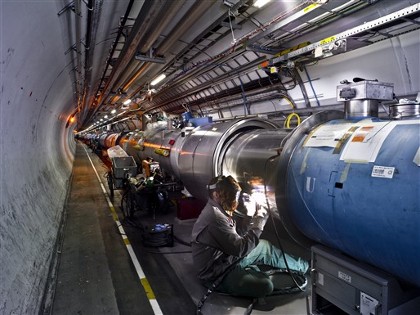Large Hadron Collider delayed again by vacuum leaks


An engineer works on closing up LHC sectors
The restart of the Large Hadron Collider has been pushed back further, following the discovery of vacuum leaks in two sectors of the experiment.
The world's largest particle collider is now unlikely to restart before mid-November, according to a Cern press statement. The project had been expected to start again in October.
To repair the leaks, which are from the helium circuit into the insulating vacuum, sectors 8-1 and 2-3 will have to be warmed from 80K to room temperature. Adjacent sub-sectors will act as 'floats', while the remainder of the surrounding sectors will be kept at 80K, Cern said in the statement. The repair work will not have an impact on the vacuum in the beam pipe.
The LHC experiment, which is designed to answer fundamental questions about the nature of matter, had to be halted nine days after it became fully operational last September, due to a leak of liquid helium. To be super-conductive, the experiment is cooled using liquid helium.
Cern has pushed back the restart a number of times, as repair work has continued. To begin with, scientists said the LHC experiment would restart in April 2009.
In May, Cern told ZDNet UK that the restarted experiment could run through the winter to make up some of the lost time. Normally, running the experiments through the alpine winter is prohibitively expensive, due to high electricity costs. However, as the experiment has not been running since last September, Cern would have the budget to cover energy costs over the winter.
This article was originally posted on ZDNet UK.